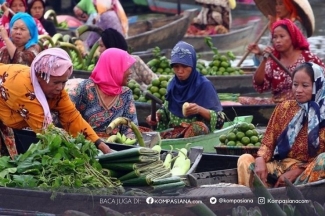Mother's Day is widely celebrated to honor mothers, but has its meaning been reduced to mere tradition? In Indonesia, this special day on December 22 was born from the First Indonesian Women's Congress in 1928, a milestone recognizing women's vital contributions. Yet today, celebrations are often driven by social media trends and consumerism, with millions sharing hashtags or buying extravagant gifts. Does this truly reflect appreciation for mothers, or has the celebration lost its deeper essence? To answer this, we must first revisit the history and meaning of Mother's Day.
1. The History and Meaning of Mother's Day
Mother's Day is celebrated to honor the immeasurable contributions of mothers. In Indonesia, it falls on December 22, commemorating the First Indonesian Women's Congress in 1928. While the global version of Mother's Day, pioneered by Anna Jarvis, started in the United States, Indonesia's version emphasizes not only family roles but also women's contributions to national development. Despite its noble roots, the celebration often leans toward symbolic gestures like cards and flowers, raising questions about its true purpose.
2. The Impact of Social Media on Mother's Day
In today's digital era, social media dominates Mother's Day celebrations. Millions of users share hashtags, digital tributes, or posts about their mothers, often driven by the Fear of Missing Out (FOMO). While technology helps bridge distances, it can make expressions of gratitude superficial. Instead of being a heartfelt tribute, Mother's Day risks becoming a trendy obligation, overshadowing its essence of genuine love and respect.
3. Making Mother's Day More Meaningful
Mother's Day should go beyond trends and consumerism. It's an opportunity to advocate for policies that support mothers' well-being, from better caregiving resources to gender equality. True appreciation lies in daily acts of kindness---helping with household tasks, spending quality time, or simply listening. By focusing on consistent actions, we ensure Mother's Day is not just a date on the calendar but a reflection of enduring love and gratitude.
Conclusion
Mother's Day, celebrated annually on December 22 in Indonesia, carries deep historical and cultural significance. Rooted in the First Indonesian Women's Congress of 1928, it symbolizes the recognition of mothers' invaluable roles in families and society. However, in the modern era, the celebration often leans toward consumerism and social media trends, risking the loss of its true essence.
To preserve the meaning of Mother's Day, it's essential to shift the focus from fleeting gestures to meaningful, everyday appreciation. This includes advocating for structural support for mothers and creating an inclusive society where their contributions are genuinely valued. Let us ensure that Mother's Day serves not just as a moment of celebration but as a call to action for better recognition of motherhood's enduring impact.
Authored by : Dhini Maylaffaizzah N.R., Bagas Sukma Sejati, Dwigianto Dimas Prabowo, Figo Geriandi, Tatu Zakiyatun Nufus.
Baca konten-konten menarik Kompasiana langsung dari smartphone kamu. Follow channel WhatsApp Kompasiana sekarang di sini: https://whatsapp.com/channel/0029VaYjYaL4Spk7WflFYJ2H
